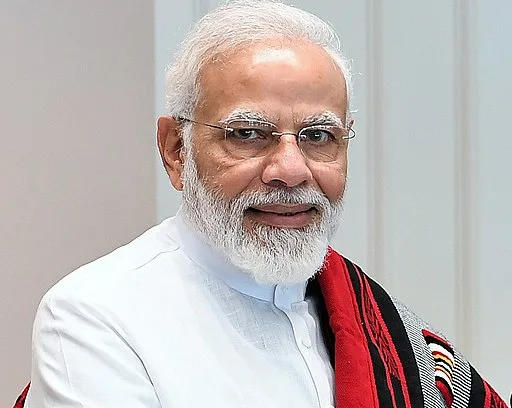Pakistan criticizes Indian Prime Minister Narendra Modi’s recent statements as jingoistic and counter-productive, urging focus on human rights issues in Indian illegally occupied Jammu and Kashmir (IIOJK)
On July 27, 2024, Pakistan vehemently rejected Indian Prime Minister Narendra Modi’s recent remarks, which it labelled as “belligerent” and detrimental to resolving the long-standing disputes between the two nations. Modi’s comments, delivered earlier in the day, accused Pakistan of using “terrorism” and “proxy war” to remain relevant, suggesting these strategies would ultimately fail.
In response, Pakistan’s Foreign Office (FO) spokesperson, Mumtaz Zahra Baloch, condemned Modi’s statements, asserting that they are an attempt to deflect international scrutiny from the alleged human rights abuses occurring in Indian Illegally Occupied Jammu and Kashmir (IIOJK). Baloch emphasized that such bravado undermines efforts to address the core dispute between India and Pakistan, particularly the issue of Jammu and Kashmir.
Embed from Getty ImagesThe FO’s statement criticized Modi’s rhetoric as counter-productive, arguing that it fails to address the real issues at hand and only exacerbates regional tensions. The spokesperson highlighted that the Indian leadership’s statements cannot divert global attention from what Pakistan describes as India’s oppressive tactics against the Kashmiri population, who are striving for self-determination and basic rights.
Pakistan also accused the Modi administration of engaging in targeted assassinations and subversive activities abroad, urging New Delhi to reflect on its own actions rather than maligning others. The FO’s comments included a warning to India against further aggression, underscoring Pakistan’s readiness to defend its sovereignty, referencing its response to India’s alleged incursion in February 2019.
Despite the tense exchange, Pakistan reiterated its commitment to regional peace and stability, contrasting its stance with India’s approach. Diplomatic relations between the two countries have been strained since August 2019, when India abrogated the special status of IIOJK and restructured it into two federally administered territories, prompting a series of retaliatory diplomatic measures.
Analysis:
Political: Modi’s remarks and Pakistan’s response reflect the ongoing political animosity and high-stakes diplomacy between the two nations. Modi’s strategy to accuse Pakistan of terrorism is seen as a tactic to consolidate domestic support and shift focus from contentious issues within India, such as the Kashmir dispute and human rights allegations. Pakistan’s rebuttal highlights the broader political dynamics, emphasizing the need for constructive dialogue rather than provocative rhetoric. The strained relations and mutual accusations further complicate the prospects for diplomatic resolution and regional stability.
Social: The exchange of accusations between India and Pakistan has significant social implications. Modi’s allegations play into nationalist sentiments, potentially inflaming public opinion and stoking anti-Pakistan sentiment within India. Conversely, Pakistan’s response underscores the impact of such rhetoric on communities affected by the Kashmir conflict. Socially, the discourse surrounding human rights abuses and regional stability remains deeply polarizing, influencing public perceptions and community relations on both sides of the border.
Racial: Although the immediate statements do not address racial issues directly, the broader context of the Kashmir conflict involves ethnic and cultural dimensions. The Kashmiri population, predominantly Muslim, faces allegations of discrimination and human rights abuses from the Indian government. The conflict’s racial and ethnic undertones are often highlighted in international discussions, with Pakistan emphasizing the plight of the Kashmiri people and calling for global attention to their struggles.
Gender: The impact of the ongoing conflict on gender issues is significant, though not explicitly mentioned in the statements. Women in conflict zones, such as Kashmir, often face unique challenges, including gender-based violence and displacement. The broader discourse around human rights and regional conflict must consider these gendered dimensions to address the needs and rights of women affected by the turmoil.
Economic: The ongoing tensions and rhetoric between India and Pakistan have economic ramifications, particularly in terms of trade and investment. The strained diplomatic relations and periodic escalation of conflict hinder economic cooperation and development in the region. Both countries face economic costs related to military expenditures and the impact of instability on investor confidence. The emphasis on defence and national security can divert resources from economic development and social welfare initiatives.
